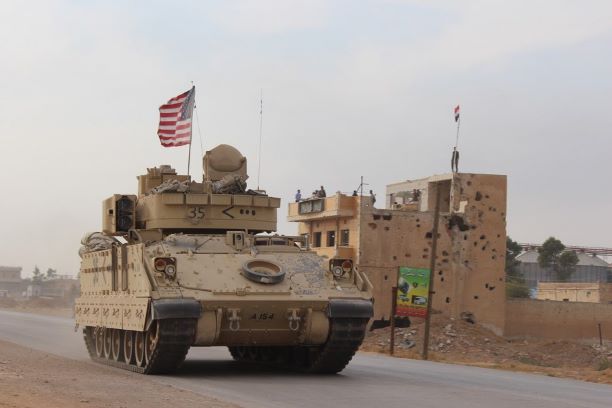Beijing, April 17 (Xinhua) — An addict to force and invasion, the United States, a self-proclaimed “shining city on the hill,” has long sought to justify its wanton military operations in the name of “humanitarian intervention.”
The world’s sole superpower has long been the mastermind of a number of humanitarian disasters and in fact the creator of wars, turmoil and pains across the world.
From directly waging wars to supporting proxy wars, from inciting domestic rebellion elsewhere to providing weapons and ammunition, and training anti-government armed forces, the United States has an appalling record of intervening in many countries by force.
Statistics suggest that from the end of World War II to 2001, there were at least 248 armed conflicts in the world, of which 201 were initiated by the United States, according to a recently published article titled “Severe Humanitarian Disasters Caused by U.S. Aggressive Wars against Foreign Countries” by China Society for Human Rights Studies.
These wars not only claimed the lives of a large number of soldiers, but also caused extremely serious civilian casualties, social unrest and property losses, resulting in alarming humanitarian disasters.
Since the 21st century alone, the world has recorded a total of about 27 million refugees due to wars in Afghanistan, Iraq and Syria, all with American intervention.
After World War II, in a bid to consolidate its global hegemony, the United States turned into a professional meddler with other countries’ internal affairs. Usually, Washington interfered in the name of democracy but actually created one human rights disaster after another under the banner of human rights.
Economic sanctions, cultural infiltration, inciting riots and manipulating elections are common plays in the U.S. interventionism textbook against the so-called “ideologically hostile countries.”

Lindsey O’Rourke, a political scientist at Boston College, wrote in her book titled “Covert Regime Change: America’s Secret Cold War” that from 1947 to 1989, the United States launched altogether 64 operations of subversion in other countries.
The Central Intelligence Agency’s first known covert action was to manipulate Italy’s 1948 election by spreading incendiary propaganda, bankrolling their preferred candidate, and orchestrating grassroots initiatives — “all to advantage Italy’s centrist forces over their leftist competitors,” according to an article published by Foreign Affairs.
With mounting experience, Washington became more and more skilled in manipulations of elections across the world. From Chile, Guyana to El Salvador, similar operations were observed.
Even the U.S. allies are not exempted from the U.S. interventionism. The lessons like the Plaza Accord with Japan was not far away, and the effect of the weakening pound and euro respectively to Britain and Germany is still there.
Such unscrupulous interventionism is downright hegemonism and a gross violation of international law and order, which will only face backlash from the international community.
Mounting facts have alarmed that as long as the United States does not completely abandon interventionism, the peace of the world will continue being threatened.
The era when the global situation was determined by one or few superpowers has gone. The path a country takes is based on its own cultural traditions and historical accumulation, in which no external forces have the right to interfere.
Any country, who willfully places its hegemonic will above the sovereignty of other countries and the international law, is going against the global trend and will end up being isolated from the rest of the world.
Ends.





























































